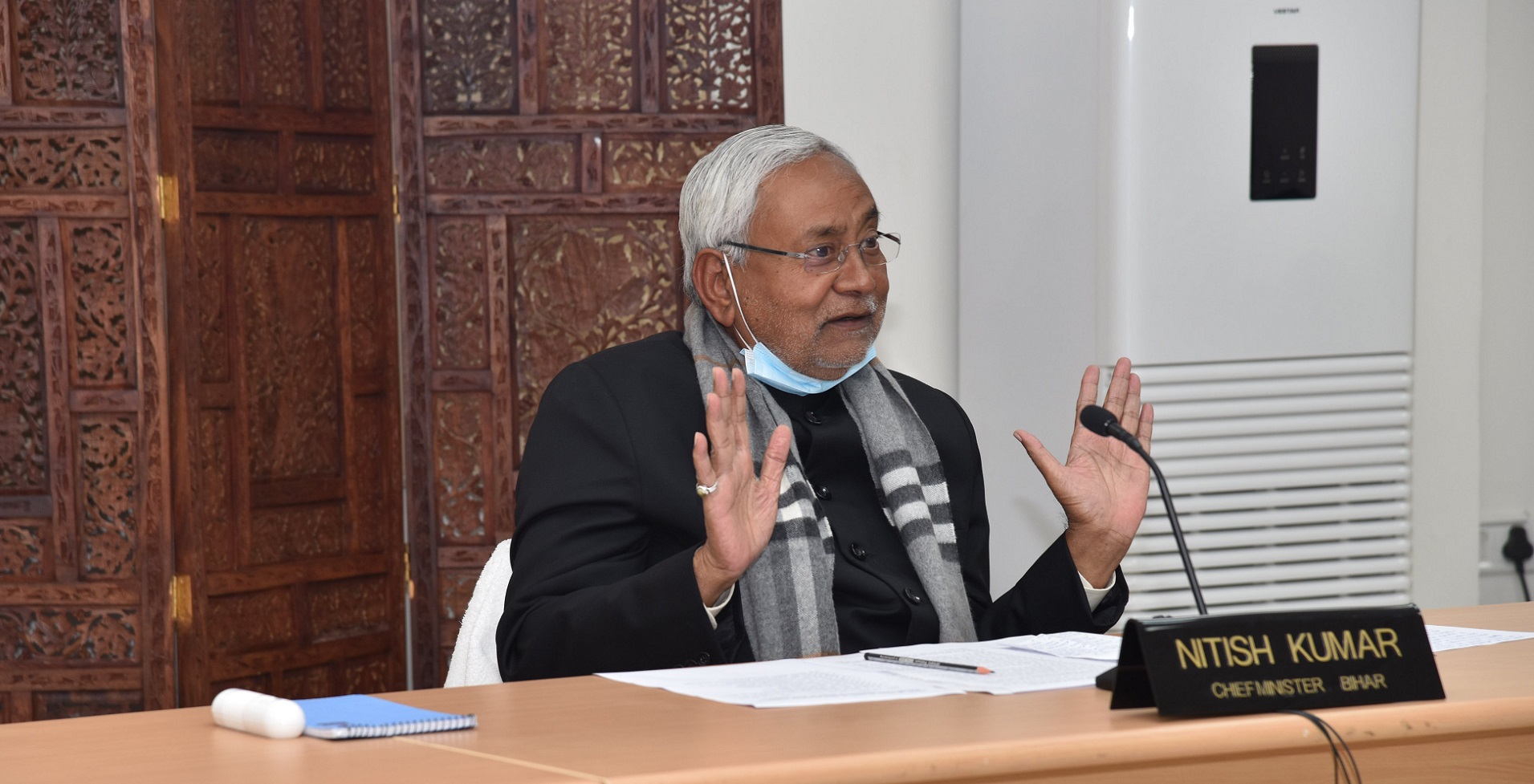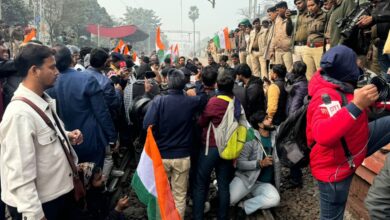
Bifurcation of Bihar in 2000 gave away the industrial landscape to a newly made state, Jharkhand. What remained in the old state was a terrain without the industrial infrastructure, hope and political accountability—to reorient the new economy of the old populous state and retain the workforces in local productive activities. After horrendous economic performance during 1990-2005, Bihar had witnessed a comparative advantage with the new commitment to governance, infrastructural overhaul and reforms in the energy sector. However, Nitish Kumar did little to score higher on his own satisfactory show in his first full-term (2005-10) as the Chief Minister of Bihar.
As his longing for the Chief Minister’s position remained unswerving, he failed the state and its people by limiting the equitable growth prospects with prioritising petty political goals over the economic grand vision. Considering the economic growth in comparative rather absolute terms, a false sense of euphoria was created. After a few rounds of customary conviviality, Nitish Kumar and then his Finance Minister Sushil Modi did little to create an enduring interface with the industry. Indifference to the possibilities of making Bihar adequately sufficient with conducive industrial activities and thereby checking the exodus of young workforces from the state—reflects on Bihar’s current political leadership.
With a mandate that was not favourable enough for a seasoned politician to consider helming again as the Chief Minister of Bihar, Nitish Kumar did a grave injustice to himself and the state. He worked for long as a fairly sensible politician with sound judgemental capacity, surely except him no one knows the reason for his bizarre choice in public life for an office that is never too far for him even if he explores an ideologically comforting option. The leading decision-makers’ in the state government are either pressed through their own construct and showing off sufficiently in terms of curing the ills or finding themselves marginalised by the political leadership’s disdain for expertise and over-reliance on third parties. The state government’s websites including the industry department reflect very poorly on plans, data and vision—for a fair assessment of industrial outcomes. As far as knowledge management is concerned, a few selected NGOs have colonised the state’s intellectual arena. With no locally empowered media, the situation even gets bad to worse in flagging the issues of governance and development.
While the real data is questionable even beyond Bihar’ borders in India, the state’s own preparedness on this matter is extremely precarious. As one goes on to look at Invest India’s website, there is surely a strong reason to be dismayed by seeing two different versions of identified sectors and without details for key sectors—Food Processing & Dairy; Textile & Leather; Renewable Energy; Tourism. No mention of Agriculture, Services including IT & ITeS, Education & Skilling, Healthcare and Infrastructure that can be labour-intensive and capable of fulfilling the glaring needs of quality employment opportunities in a workforce-exporting state like Bihar.
In an unprecedented manner, the disruptive process of collective economic loss was started with a series of monumental blunders from the centre with hurried demonetisation, unprepared GST implementation and dramatic lockdown. More to these, the global pandemic Covid-19 caught the entire universe unaware, particularly the government of Bihar. An imposed lockdown without a proper notice created a humanitarian crisis and affected millions of Bihari migrants working in the semi-organised and unorganised sectors—and they left with no choice but to be homebound on their feet without hope or support. More than any other issues, the influencing factors of livelihood losses were discussed most—and the political camps came forward too with making employment creations in both government and private sectors as their agenda in recently fought Bihar elections. However, the end result is shabby—and migrants’ are much more precarious now as they are gradually returning back to their places of work for mere survival.
Nitish is coping with an over-confident senior alliance partner BJP for saving his party’s MLAs and protecting the residue of his secular credentials by resisting the law on Love Jihad and many more such advances. His 6 MLAs have been poached by BJP in Arunachal Pradesh—and to avoid the collateral damage and deal with a BJP without Sushil Modi in the state government, RCP Singh was made JD (U) Chief. With unprecedented intra-coalition contradictions and tussles, Nitish Kumar is running a government without an agenda and inspiration.
Mass aspirations cornered and no arsenal left except for political upheavals, the new government promises not much for restructuring the state’s industrial capacities. For almost the last three decades, Bihar has been suffering through its lamentable political-economic divide. With just improved basic infrastructure and status of a remittance-driven economy, Bihar can’t go very far in securing the decent livelihoods for majority of people who are destined to migrate hopelessly. In absence of a pragmatic political discourse that could have instilled a sense of economic responsibility as well, the state has desperately witnessed the opportunities foregone.
The centre’s long and painful apathy to the hindrances on coal linkage and freight equalisation policy (1952) had eroded the competitive edge of Bihar and other eastern states. Bihar suffered most among them and private investment and production facilities remained elusive for long despite the state’s edge with mineral resources and fertile land. The freight equalisation policy subsidised the transportation of minerals to a factory set up anywhere in the country. It is well in public reckoning how the policy hurt the economic prospects of mineral-rich states like undivided Bihar (including present-day Jharkhand), West Bengal, Madhya Pradesh (including present-day Chhattisgarh) and Odisha. In the current scenario, NDA government in Bihar’s inability to secure the repeatedly made promises for “Special Status” for state from the NDA government at centre is baffling—reminding bitterly about the unfortunate continuance of a regressive policy trend.
No matter how Nitish Kumar goes ahead with his political preference, his choices have to be much more balanced on policy fronts. With removing the anomalies and outlining the implementing strategies, he must come out with a better drafted Bihar’s Industry Investment Policy. Overplayed politics and underplayed economic action has not served in favour of Bihar, an overly complacent group of people can’t be helpful in decision-making, Nitish Kumar should attempt for a course correction by giving the expertise, its well-deserved due. In keeping at bay the cheerleaders disguised as policymakers—and using their own mind and conscience, he will be better placed to think about the state. Ignoring urgency in bridging the gap between politics and economics should not be wishful for him.
(Atul K. Thakur is a policy professional, columnist and an advisor, BiharConnect. views expressed are the author’s own. This article was first published in Financial Express.)




